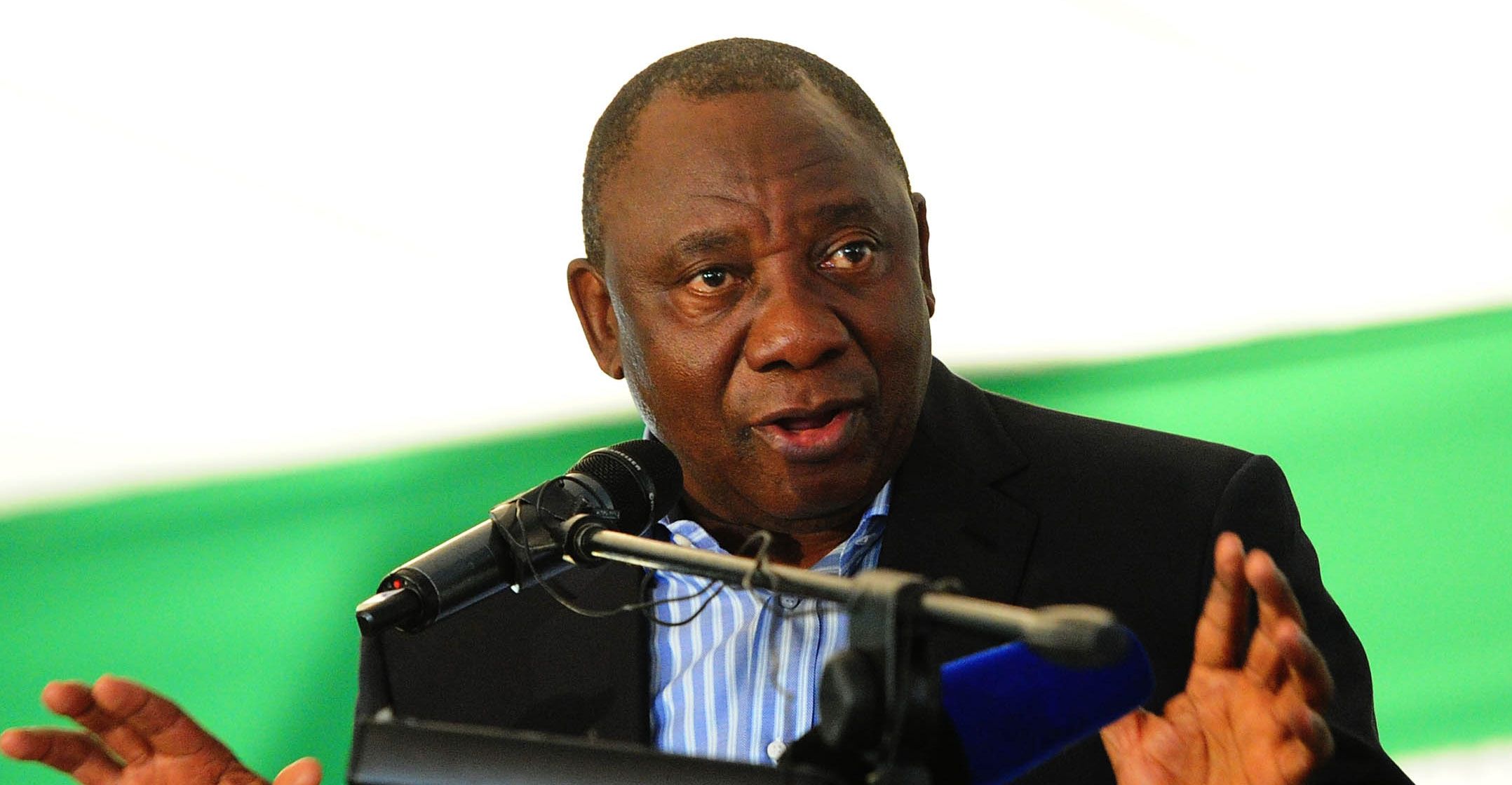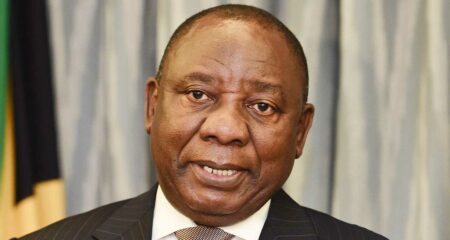
Deputy President Cyril Ramaphosa said the authorities are intensifying their attack on pervasive corruption in the state and are having “positive” discussions with investors about the future of the economy.
“The wheels of change are moving now and they are going to start speeding up,” Ramaphosa said on Wednesday in an interview with Bloomberg Television at the World Economic Forum in Davos, Switzerland.
“Cleaning up clearly is going to be quite a mammoth task, but we have to start somewhere. Our people are clamouring for a clean government, and that is what we are going to give them.”
Ramaphosa, 65, was elected leader of the ANC last month, positioning him to succeed President Jacob Zuma, whose almost nine-year tenure has been marred by scandal. While Zuma’s second term is due to end in mid-2019, the ANC has said its newly elected top six leaders will determine when he should step down.
“We have taken a view that this is a very, very difficult matter,” Ramaphosa said, when asked if Zuma would serve out his term. “We have decided we are going to manage this transition very carefully. What we don’t want to see is him treated with disrespect. We will manage it so well so that it does not divide the nation.”
The rand has rallied on optimism Ramaphosa can bring in change and revive an economy that sank into its second recession in a decade last year. It’s the best performing currency tracked by Bloomberg since he won the party leadership, trading stronger than R12/US$ on Wednesday for the first time in almost three years.
A lawyer and one of the richest black South Africans, Ramaphosa has already shown his increasing influence over the government. His office announced sweeping changes to the board of cash-strapped state power utility Eskom on 20 January, including the appointment of Jabu Mabuza, one of Zuma’s most outspoken critics, as chairman.
Last week prosecutors moved to seize assets of Trillian Capital Partners, which was majority owned by an ally of the Gupta family, because of alleged unlawful payments from Eskom. The Guptas are in business with Zuma’s son, Duduzane, and have been implicated in alleged looting of billions of rand from state companies in reports by the nation’s graft ombudsman and a group of top academics. Zuma and the Guptas deny wrongdoing.
Avoiding downgrades
Ramaphosa said the government, business and labour are working together to address South Africa’s failings, and he’s confident the country can avoid further downgrades after two major ratings companies cut their assessments to junk last year.
“We now have a better story to tell to the ratings agencies. Some of the things that they were worried about, we are putting right now,” he said. “We are more stable. We are correcting issues of regulatory uncertainty. We are also addressing issues of where growth of our economy will come from and we are also addressing issues of state-owned enterprise reform. It is not like last year, or a year ago, when we were all over the show. We’ve got a game plan.”
Plans announced by Zuma last month to provide free tertiary education for poor students shouldn’t place undue pressure on the country’s finances, according to Ramaphosa.
“The burden may not be as large as we thought it was,” he said. “When the budget is announced, we will be able to find the money. I think we will find the solution for that. I think we should be able to have a well-balanced budget. We are on a good path. The discussions I’m having with investors have been very positive.” — Reported by Francine Lacqua, Mike Cohen and Amogelang Mbatha, (c) 2018 Bloomberg LP




